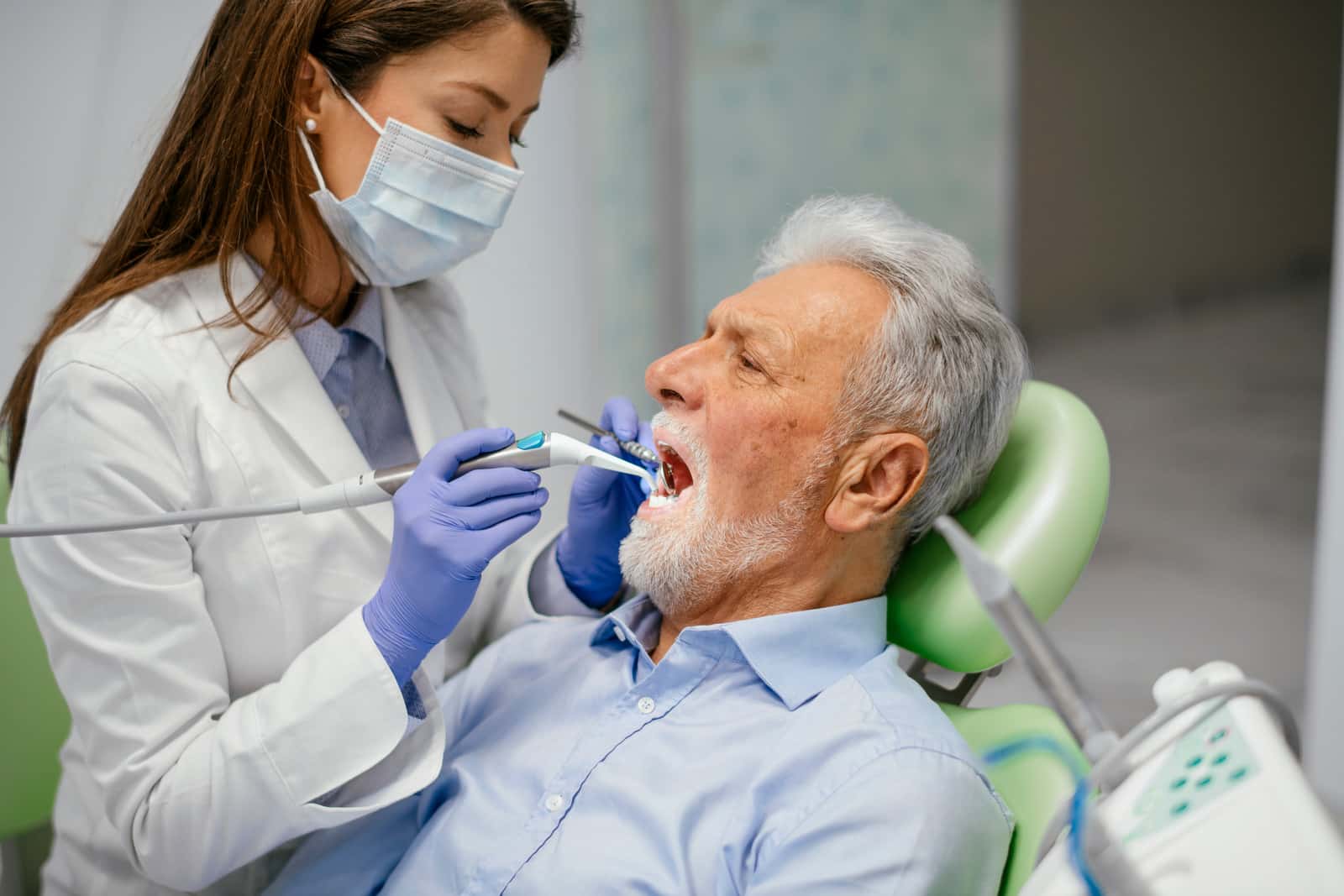Dental abscesses are a serious oral health issue that requires immediate attention. Left untreated, they can lead to severe complications, not only affecting your teeth and gums but also posing risks to your overall health. At ARC Dental Surgery in Blackpool, we prioritise quick and effective treatment to alleviate pain and prevent further damage.
In this blog, we’ll explore what dental abscesses are, their symptoms, causes, potential risks, and why seeking prompt treatment is essential for maintaining your oral and overall health.
What Is a Dental Abscess?
A dental abscess is a pocket of pus caused by a bacterial infection. It can occur in different parts of the tooth or gums, depending on the source of the infection.
Types of Dental Abscesses:
- Periapical Abscess: Forms at the tip of the tooth root, usually caused by untreated tooth decay.
- Periodontal Abscess: Affects the gums and surrounding tissue, often due to gum disease.
- Gingival Abscess: Develops in the gum tissue, typically from a foreign object like food particles getting stuck.
Common Symptoms of a Dental Abscess
The symptoms of a dental abscess can range from mild discomfort to intense pain. Recognising these signs early can help you seek treatment before the condition worsens.
Key Symptoms:
- Severe, throbbing toothache that may radiate to the jaw, neck, or ear.
- Swelling in the face, gums, or jaw.
- Sensitivity to hot, cold, or sweet foods and drinks.
- Red, swollen gums or a visible boil-like swelling.
- Foul taste in the mouth caused by pus draining.
- Fever or general feeling of being unwell.
- Difficulty chewing, swallowing, or opening the mouth.
If you experience any of these symptoms, it’s crucial to contact your dentist immediately.
Causes of Dental Abscesses
Dental abscesses typically occur when bacteria invade the soft tissues of the mouth, usually through:
1. Tooth Decay
- Untreated cavities can allow bacteria to reach the inner layers of the tooth, leading to infection.
2. Gum Disease
- Gingivitis and periodontitis create pockets in the gums where bacteria can accumulate and cause abscesses.
3. Dental Trauma
- Cracks or chips in the teeth can expose the pulp to bacteria, increasing the risk of infection.
4. Poor Oral Hygiene
- Inadequate brushing and flossing can lead to plaque build-up, creating an environment for bacterial growth.
5. Foreign Objects
- Food particles or debris trapped between the teeth and gums can trigger an abscess if not removed.
Why Prompt Treatment for Dental Abscesses Is Crucial
Ignoring a dental abscess can have severe consequences, both for your oral health and overall well-being. Seeking immediate treatment is essential to:
1. Alleviate Pain and Discomfort
- Dental abscesses cause intense pain that can interfere with daily activities like eating and speaking. Prompt treatment provides relief and restores comfort.
2. Prevent Spread of Infection
- Untreated abscesses can lead to the infection spreading to other parts of the body, including the jawbone, neck, and even vital organs. This can result in life-threatening conditions like sepsis.
3. Save the Affected Tooth
- Early intervention can help preserve the infected tooth, avoiding extraction. Treatments like root canals remove the infection while maintaining the tooth’s structure.
4. Avoid Costly Complications
- Delaying treatment often leads to more extensive and expensive procedures, such as surgery or tooth replacement.
5. Protect Overall Health
- Dental infections can have systemic effects, contributing to conditions like heart disease and diabetes if bacteria enter the bloodstream.
How Are Dental Abscesses Treated?
At ARC Dental Surgery, our team provides comprehensive care to treat dental abscesses effectively. Treatment plans are tailored to the severity of the infection and the condition of the affected tooth.
1. Drainage of the Abscess
- The first step often involves draining the abscess to remove pus and reduce swelling. This provides immediate relief from pressure and pain.
2. Root Canal Treatment
- For abscesses caused by tooth decay, a root canal is performed to remove infected pulp, clean the root canal, and seal the tooth.
3. Tooth Extraction
- If the tooth is severely damaged and cannot be saved, extraction may be necessary to prevent further infection.
4. Antibiotics
- In cases of severe infection, antibiotics may be prescribed to eliminate bacteria and prevent the spread of infection.
Preventing Dental Abscesses
While some dental emergencies are unavoidable, good oral hygiene and regular dental visits can significantly reduce your risk of developing an abscess.
Tips for Prevention:
- Brush and Floss Daily
- Use fluoride toothpaste to protect against decay and floss to remove debris between teeth.
- Visit Your Dentist Regularly
- Routine check-ups at ARC Dental Surgery allow us to detect and address issues early before they escalate.
- Address Dental Problems Promptly
- Don’t delay treatment for cavities, gum disease, or damaged teeth.
- Maintain a Healthy Diet
- Limit sugary foods and drinks that contribute to tooth decay.
- Use Mouthguards
- Protect your teeth during sports or other high-risk activities to avoid trauma.
Signs You Should Call Us:
- Severe or persistent toothache.
- Swelling in the gums, face, or jaw.
- Fever or a general feeling of being unwell.
- A bad taste in the mouth or foul-smelling breath.
Our team is here to help you find relief and restore your oral health.
Dental abscesses are serious infections that require immediate attention. Prompt treatment not only relieves pain but also prevents complications that could endanger your oral and overall health. At ARC Dental Surgery in Blackpool, we are committed to providing expert care to address dental abscesses and other emergencies.
If you’re experiencing symptoms of a dental abscess or have concerns about your oral health, contact us today. Let us help you take the first step towards a healthier, pain-free smile.
